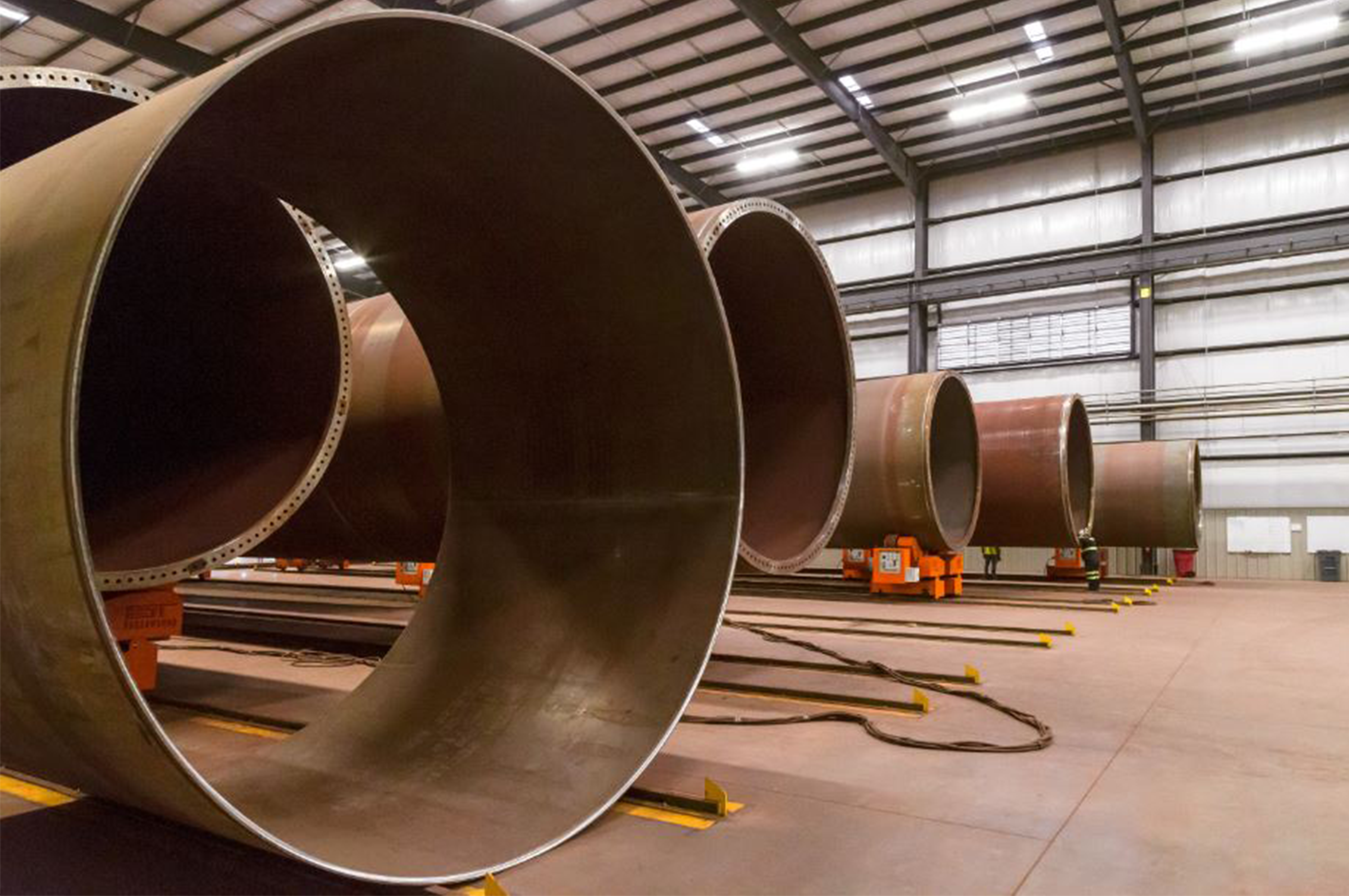
June 5, 2019
GRI Renewable Industries publishes its fifth Sustainability Report concerning the 2018 exercise
- Based on its commitment to energy and to avoid climate change, the company wants reduce these impacts and help the consecution of the Sustainable Development Goals (SDG), through various initiatives aimed at the following goals:
- SDG 13.2: integrate climate change measures into national policies, strategies, and planning
- SDG 9.4: upgrade infrastructure and retrofit industries to make them sustainable
- SDG 4.4: substantially increase the number of youth and adults who have relevant skills
- In 2018, GRI Renewable Industries indirectly avoided the emission of 245,472 tons of CO2 through the development of wind towers.
Madrid, 10 June, 2019.– GRI Renewable Industries publishes its fifth Sustainability Report concerning the 2018 exercise aiming to submit, in a balanced and transparent way, the financial, environmental and social results to its stakeholders.
This new Report has been elaborated in conformity with the Global Reporting Initiative Standards (GRI-standard), and in compliance with the Ten Principles of the UN Global Compact.
Economic dimensión
It shows its financial results with an economic value distributed of 476 million euros.
GRI Renewable Industries is a reference supplier in the sector worldwide, with factories in Brazil, the United States, India, South Africa, China, Spain, Turkey and Argentina.
In the global context, 2018 was characterized for various changes in the energy policies and the devaluation of currencies of some of the countries in which the company is present, besides having difficulties in the Amarillo (USA) factory start-up.
With regard to its growth, the new GRI Flanges China IV and GRI Towers India II factories came into operation, factories that strengthen its presence in both markets.
In line with the Sustainable Development Goal 9.4, GRI searches for innovative solutions to face the current financial and environmental challenges. Worthy of note is the approval of the “Elcano University Innovation and Training Center” in the Port of Seville, led by the University of Seville, and the universities of Evora and Algarve and supported by the Port Authority, in which our company plays an important role in the development of research projects for wind components and training programs for future professionals in the sector.
Social Dimension
It gathers the most relevant information related to people, health & safety and social aspects.
3,530 professionals, mainly men (88%), form the workforce. In addition, 767 new professionals joined the Company during this exercise, whilst 653 people left it. The job stability is a priority for GRI, 89% of its employees have an open-ended contract.
Concerning Health & Safety, it shows a significant improvement thanks to the implementation of the new excellence model IPRL that defines common health & safety criteria applicable in all facilities. During the exercise 2018, GRI Towers Turkey and the Brazilian factories reached the “Excellence” on this indicator.
GRI Renewable Industries contributes to the value creation in the local economies. Furthermore, GRI undertook various social action initiatives and collaboration with foundations and organizations, both at corporate and locally.
Environmental Dimension
Based on its commitment to the Sustainable Development Goals (SDG), GRI developed various initiatives related to the ODS 13.2: advance in various initiatives against the climate change.
At this juncture and as part of its goal of planting a tree per tower produced during 2018, the Company organized various reforestation in Galicia, Madrid, Seville and the Basque Country. It is estimated that, thanks to these reforestations, the emission of 525 tons of CO2 have been avoided for the coming 40 years. Likewise, according to the construction of one thousand wind towers, the emission of 348,254 tons of CO2 have been avoided.
About GRI Renewable Industries
Since 2008, GRI Renewable Industries (www.gri.com.es/en) develops its wind towers and flanges manufacturing activity in the wind energy sector. Currently, it has 16 manufacturing plants in Spain, the USA, Brazil, Argentina, China, Turkey, India and South Africa supplying high quality wind towers and flanges to the wind energy industry worldwide. The company finished 2018 with sales around 400 million euros and over 3,500 employees.
- Based on its commitment to energy and to avoid climate change, the company wants reduce these impacts and help the consecution of the Sustainable Development Goals (SDG), through various initiatives aimed at the following goals:
